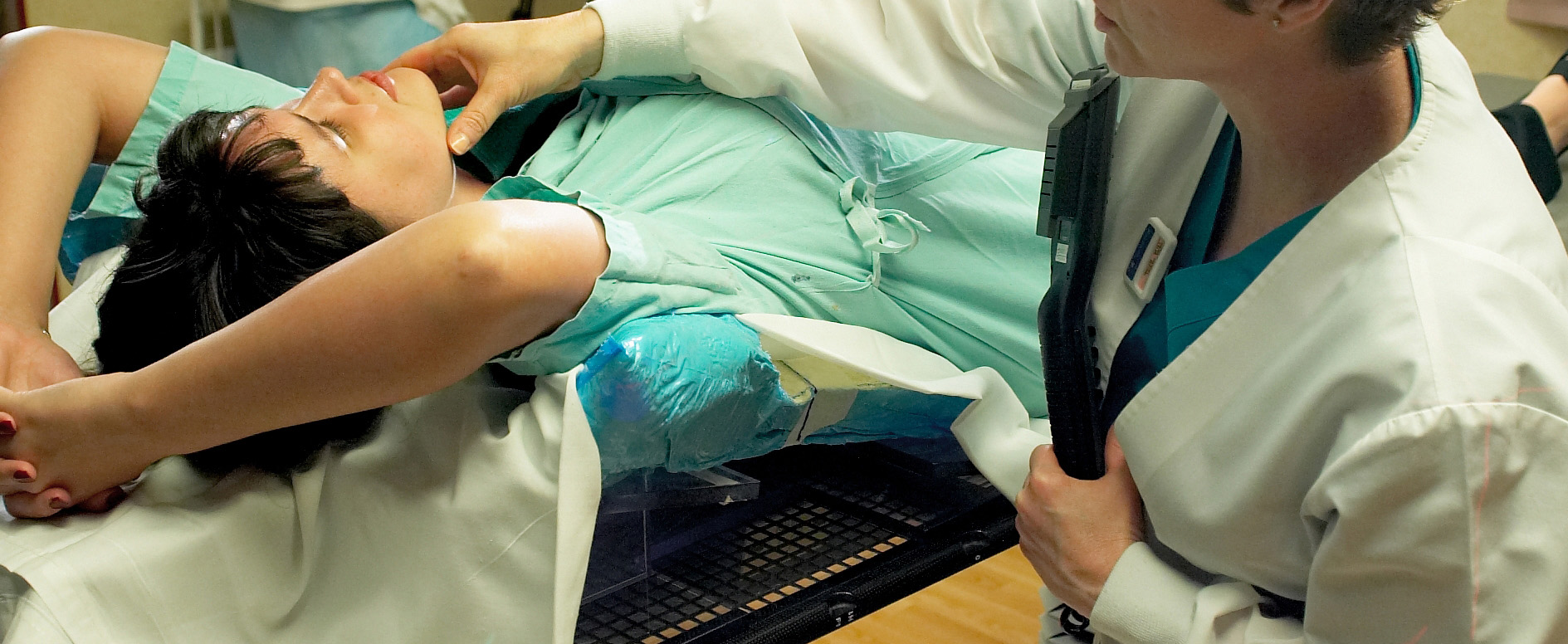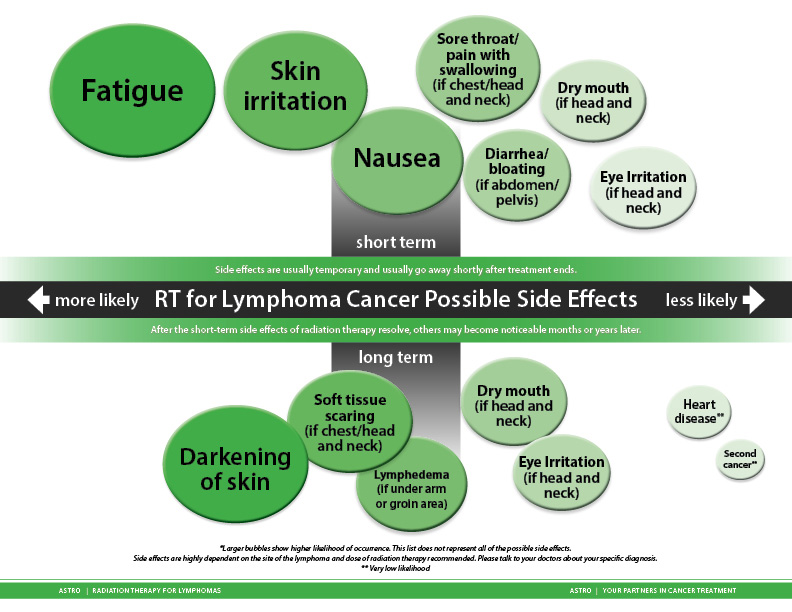
This list doesn't represent all of the possible side side effects. The side effects you might experience will depend on the part of the body being treated, the dose of radiation given and whether you also receive chemotherapy. Before treatment begins, ask your doctor about possible side effects and how best to manage them.
This is a visual side effects chart showing short and long term side effects. Larger bubbles show higher likelihood of occurrence. To see a larger version, click on the chart.
For patients who prefer to look at the side effects in text instead of graphics, please see below.
Short Term Side Effects
Side effects are usually temporary and usually go away shortly after treatment ends. Below is a list of possible side effects you might notice during your treatment.
More Likely
- Fatigue
- Skin irritation
- Nausea
Less Likely
- Sore Throat/pain with swallowing (if chest/head and neck)
- Diarrhea/bloating (if abdomen/pelvic)
- Dry mouth (if head and neck)
- Eye irritation (if head and neck)
Long Term Side Effects
After the short-term side effects of radiation therapy resolve, others may become noticeable months or years later.
More Likely
- Darkening of skin
- Soft tissue scarring (if chest/head and neck)
- Lymphedema (if under arm or groin area)
Less Likely
- Dry mouth (if head and neck)
- Eye irritation (if head and neck)
- Heart disease**
- Second Cancer**







